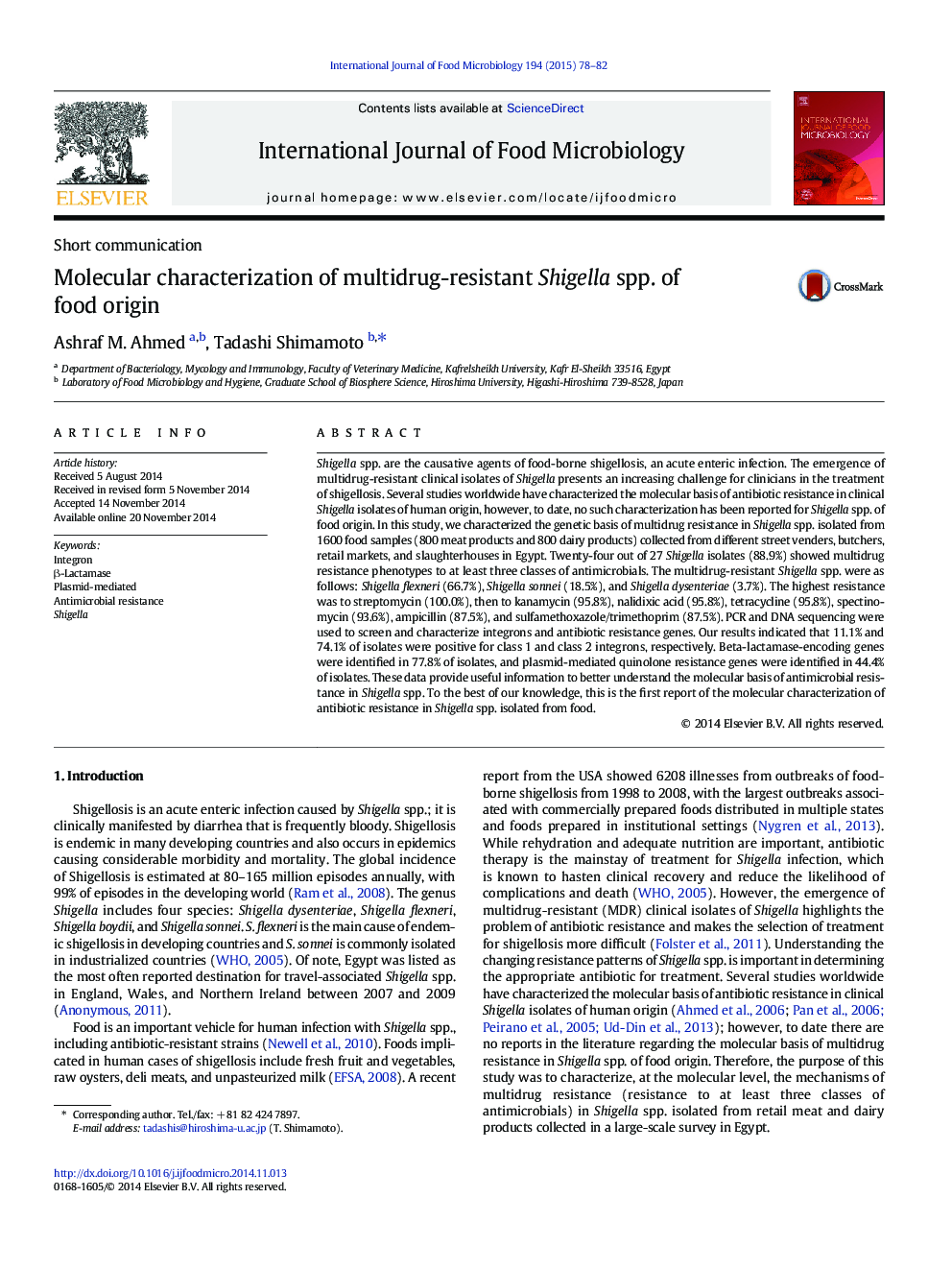| Article ID | Journal | Published Year | Pages | File Type |
|---|---|---|---|---|
| 4366696 | International Journal of Food Microbiology | 2015 | 5 Pages |
•This study highlights high incidence of multidrug-resistant Shigella spp.•Class 1 and class 2 integrons were identified in Shigella spp. from food.•β-Lactamase-encoding genes were identified in 77.8% of Shigella isolates.•Many resistance genes were identified, for the first time, in Shigella from food.•This is the first report of resistance genes in Shigella spp. from foods.
Shigella spp. are the causative agents of food-borne shigellosis, an acute enteric infection. The emergence of multidrug-resistant clinical isolates of Shigella presents an increasing challenge for clinicians in the treatment of shigellosis. Several studies worldwide have characterized the molecular basis of antibiotic resistance in clinical Shigella isolates of human origin, however, to date, no such characterization has been reported for Shigella spp. of food origin. In this study, we characterized the genetic basis of multidrug resistance in Shigella spp. isolated from 1600 food samples (800 meat products and 800 dairy products) collected from different street venders, butchers, retail markets, and slaughterhouses in Egypt. Twenty-four out of 27 Shigella isolates (88.9%) showed multidrug resistance phenotypes to at least three classes of antimicrobials. The multidrug-resistant Shigella spp. were as follows: Shigella flexneri (66.7%), Shigella sonnei (18.5%), and Shigella dysenteriae (3.7%). The highest resistance was to streptomycin (100.0%), then to kanamycin (95.8%), nalidixic acid (95.8%), tetracycline (95.8%), spectinomycin (93.6%), ampicillin (87.5%), and sulfamethoxazole/trimethoprim (87.5%). PCR and DNA sequencing were used to screen and characterize integrons and antibiotic resistance genes. Our results indicated that 11.1% and 74.1% of isolates were positive for class 1 and class 2 integrons, respectively. Beta-lactamase-encoding genes were identified in 77.8% of isolates, and plasmid-mediated quinolone resistance genes were identified in 44.4% of isolates. These data provide useful information to better understand the molecular basis of antimicrobial resistance in Shigella spp. To the best of our knowledge, this is the first report of the molecular characterization of antibiotic resistance in Shigella spp. isolated from food.
